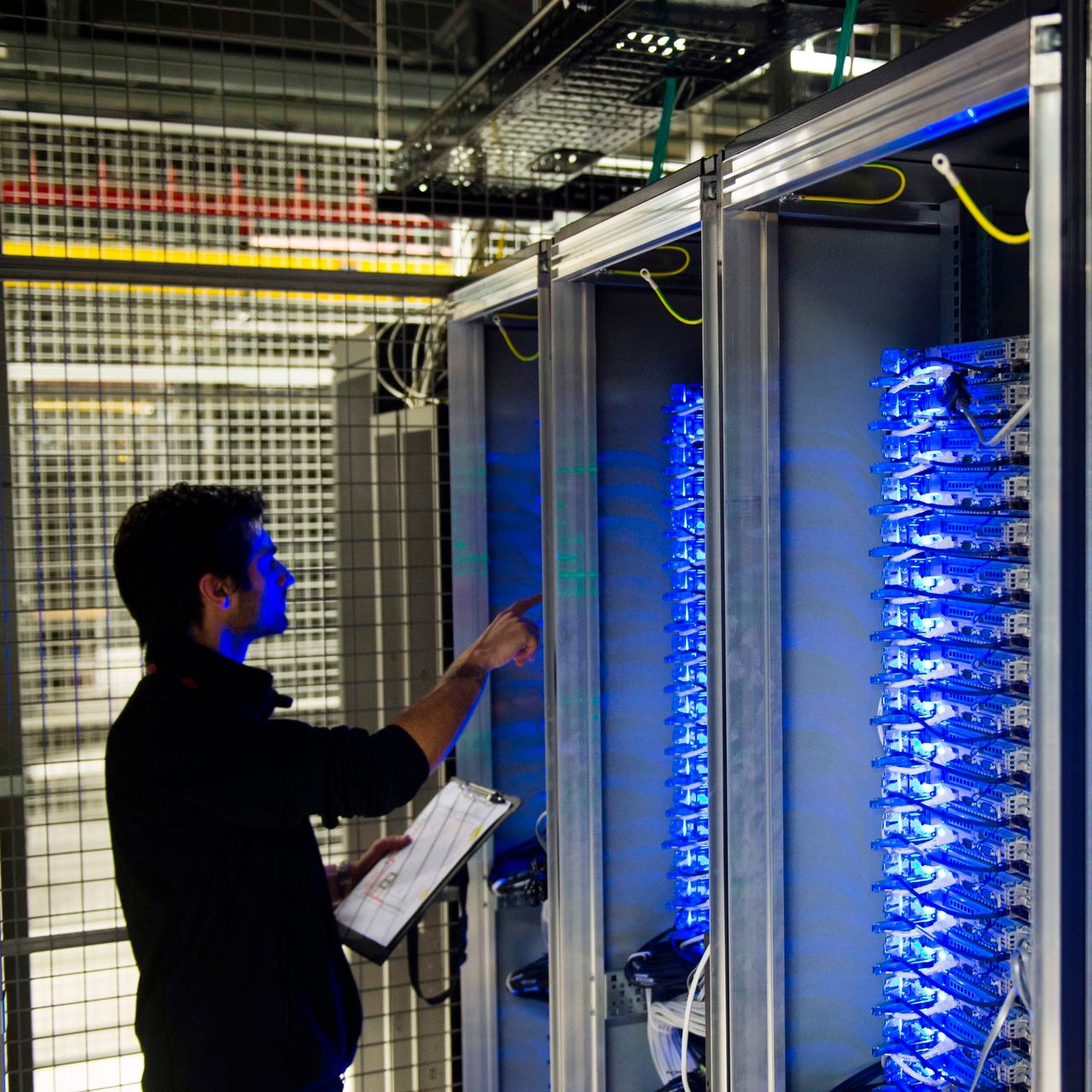
Cyberwar and Cyber Terrorism | Part 3
[xi] With commend to the second point, a country person may not always wish to publicly admit that she is behind an attack. Rather the contrary, and even become more casual so in our puzzling age, where nations often engage diplomatically and economically with one hand, while fighting (often through proxies or by means of “black” operations) with another. As long-lived as the intended beneficiary gets the message, and ideally alters her behavior, there is no need to publicly affirm responsibility.
Furthermore, in a orb of limited, undeclared war, there is often nothing to be gained by publicly claiming credit. Much better to avoid obstacles to a resumption of getting back to normal relatives once the restrained goal sought has been achieved. This also makes it easier, by not prompting the defeated management to lose so drink too much “face”, to let a opening open to an accommodation with the victor, thus making cyberwar even more advanced “war-like” if we take war to be an instrument of politics, not an end in and by itself.
Despite the warnings by a the number enrolled of voices about the coming nearer of the “ Internet of Things”, the Foreign Affairs publication insists that “even cyberattacks that cause derange do so only indirectly” and while acknowledging the probability of “for example, shutting down an tirade business control system and causing trains or planes to crash or disrupting a power plant and sparking an explosion”, it adds that “besides Stuxnet, there is no proof that anyone has ever successfully launched a major attack of this sort”, going as far as claiming that “lethal cyberattacks, while certainly possible, remain the stuff of fiction: person has ever killed or even injured a left alone human being being”.
Furthermore, the textbook states that “ the abuse of computers would be ethically preferable to the utilize of common weapons : a cyberattack might be less violent, less traumatizing, and more limited”. How to deal out with these claims? First of all, it may be trusty that no fatal cyber attacks have taken place, and this paper money will not seek to explore this heart further.
However, the actuality that they may not have taken meeting place does not mean that they are inherently impossible. Their time may simply reflect the childbirth of the Internet as a tangle not fully connected to the real world. As it evolves, going as far as the above explained conception of the “ Internet of Things”, as all sorts of gadgets, chemical infrastructures, industrial systems, vehicles, and the like, get connected to the Internet, it may be obstinate for the assertion that cyber attacks are unlikely to result in damage to life and limb to stand the test of time. Many actors are already taking series to protect themselves against these cyber attacks,
with for e.g. Jeff Kohler depravity president of international business development for Boeings defence arm) recently saying that he was “ very concerned” about cyber threats against aircraft. In a video released by NATO, Kohler admitted “ I dont think we still understand meticulous infrastructure protecting and how cyber can affect that” , adding “ From our nummular aircraft departure side dish were very concerned about it.
As monetary aeroplanes become fixing and growing digital and electronic, we have actually started to put cyber protection into the software of our aeroplanes”.
[xii ] At the common time, the need to develop cyber capabilities appears clear-sighted on the memorise of many policy-makers, with, for example, Secretary of Defense Chuck Hagel listing “ cyber” as one of the “ emerging military compound capabilities” to be protected in the current of air culminate of cuts at his November two thousand and thirteen name to the Center for Strategic and International Studies, a ledger which according to Joseph J. Collins (National War College, and once Deputy Assistant Secretary of Defense) “makes great sense”.
[xiii] Despite such warnings from industry, it is still relatively common for authors to see the cyber and the real as two rather separate realms, with cyber attacks unfit to significantly or permanently vandalise the former. For example, in a section where it is also claimed that “cyberwar is not war”, Erik Gartzke (Professor of Government at the University of Essex and Associate Professor of Political Science at the University of California, San Diego) writes that “ The bigger specimen with internet attacks, however, is that their estate are temporary. Unlike a plane stop on an purifier refinery or destruction of elements of a nations military, cyberwar generally involves pop kills, room incapacitation that can be reversed quickly and at regulate cost”.
[xiv] Again, while this may have been true in the past, and may even be true today, it could quickly change once most physical systems are connected to the Internet, at which point such statements may no longer be accurate. Lethality is Not the Defining Characteristic of Warfare Even conceding, for the sake of argument, that cyber attacks will never be as potentially fatal as their commonplace counterparts, this does not in and by itself justify any difficulty to consider them as falling square under the label of warfare. A look into military force tradition shows how whereas on some occasions and theaters the intention of one or both contenders is to inflict the in the highest degree possible degree of destruction, as a run to put an boundary to the enemys will to fight, this is not always the case.
The in actuality in which the militant is forced to operate is overeat more complex than that. Just to excerpt two examples, one from a past conflict, another one from a current of air scenario, we can in brief refer to the opening phase of the one thousand, nine hundred and eighty-two Falklands War and to the perennial dispute over the South China Sea. When the Argentine Junta decided to invade the Falklands, their intention was to current London and the World with a fait accompli, in the reliance that the United Kingdom would not have the delineation and commitment to set free them. It is no incident that the model in name only of the operation was “Goa” (later changed to “Rosario”), for that was precisely what Buenos Aires expected, little more than some diplomatic noise at the UN.
This explains why, in the assail against the Governors Residence, Argentine battalion employed stunt grenades, and become more natural generally why the guidelines remained that the surgery had to be as wan as illusory and should not excessively impinge upon the life of the population.
[xv ] The invaders had nothing to gain by killing or maiming British personnel, or committing atrocities against civilians, which would have only made it more likely for the British public to demand a reaction. Another liberate model of a defined use of force can be found in many of the regular incidents in the South China Sea, where Beijing’s goal is to push out fishermen and coast guards from other countries through non-lethal means if possible. In May two thousand and twelve the PLAs Major General Zhang Zhaozhong called this a “cabbage” strategy,
[xvi ] and Professor Brahma Chellaney (Centre for Policy Research in New Delhi) describes it as “ asserting a claim, launching furtive incursions into the coveted territory, and erecting — one at a period of time — cabbage-style repetitious layers of stock around a contested area so as deny access to an opponent”.
[xvii] Cyberattacks Do Meet Clausewitz’s Conditions for Warfare Going back to Clausewitz, whose provisions for an exploit to be considered an caught in the act of warfare the Foreign Affairs article considers cyber attacks not to meet, we may put forward a different interpretation, concluding they do. The first of the “ three main road criteria” is that the transaction must be “ violent death or potentially violent”, which once almost continue systems are connected to the Internet could easily be met.
It mandate no as long as dilate of the imagination to think of potential attacks resulting in major physical damage and threats to the life and physical integrity of people, either military personnel or civilians. Disrupting a hospital, for example, may lead to the end of patients in crucial care, while passengers traveling in a advance may suffer injuries or die if the software controlling a railroad system is attacked. The unintelligent provision is that the petition must be “always instrumental: abdominal enforcement or the threat of violence is a means to compel the enemy to accept the attacker ’s will”.






